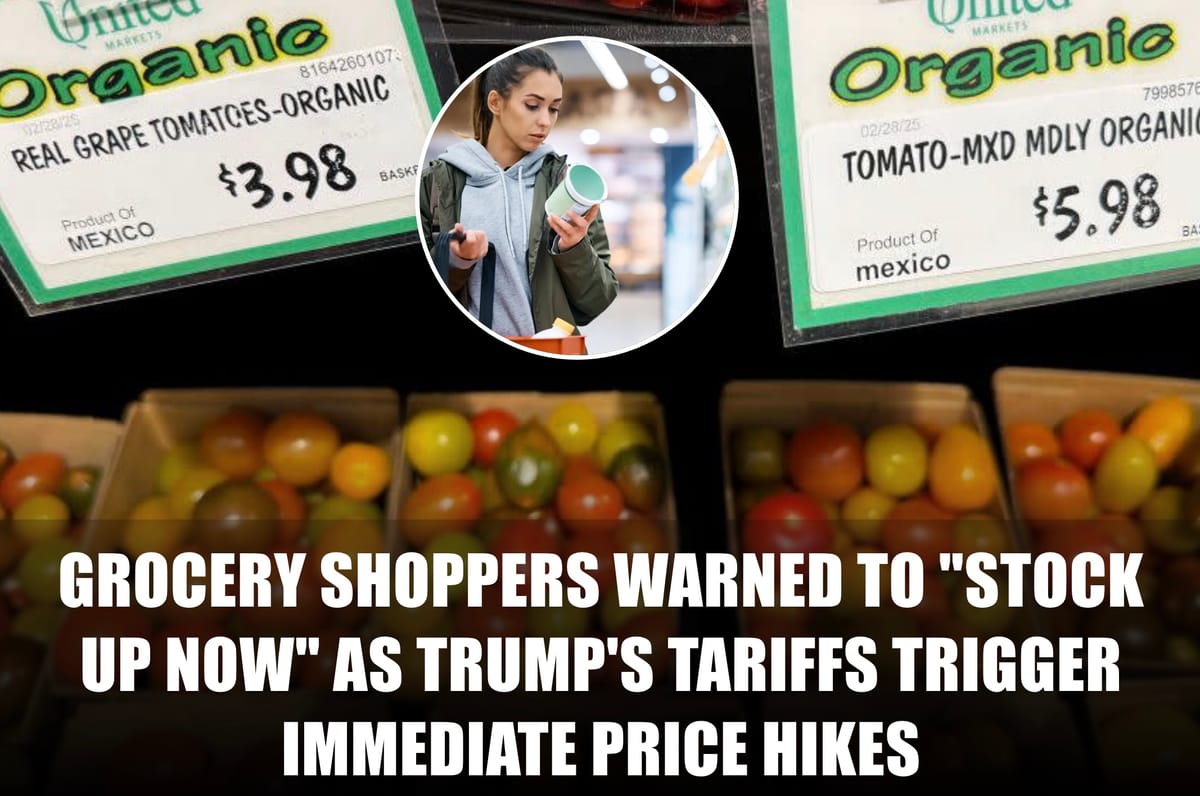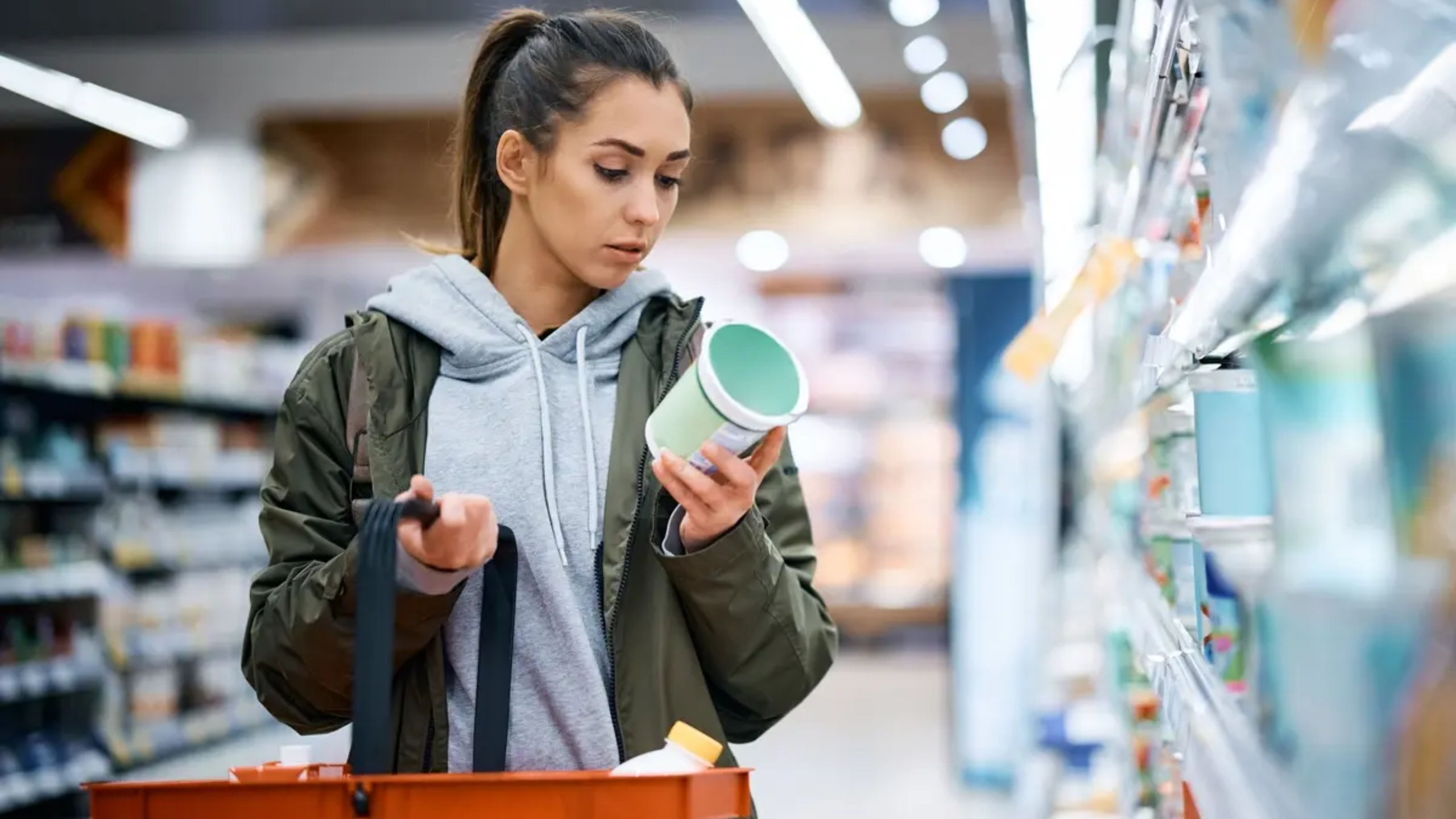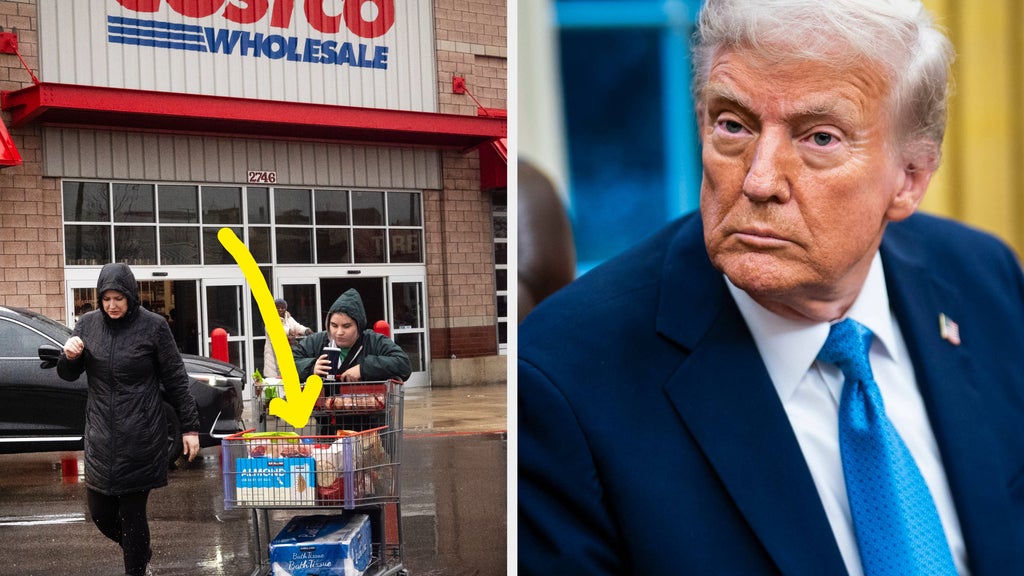Grocery shoppers warned to "stock up now" as Trump's tariffs trigger immediate price hikes

Your grocery bill is about to get a whole lot worse, and it's happening faster than you might think.
If you've been struggling with food prices over the last few years, brace yourself – experts say Trump's new 10% tariffs on imported goods are about to make your weekly shopping trip even more painful, with some price hikes already rolling out.

"Shoppers will start seeing it at scale across the store in the next 90 days," warns John Ross, CEO of IGA grocery stores. But some increases are coming much sooner, with multiple grocery executives confirming that price hikes on perishable items will hit shelves "in the next couple of weeks."
The most alarming part? Small distributors are already sending out price increase notices, with one Italian importer notifying Morton Williams grocery chain of a whopping 20% increase on olive oil and balsamic vinegar starting next month.
But it's not just fancy imports feeling the pinch. Everyday staples like bananas from Guatemala are set to increase next week, with one Texas wholesaler confirming their banana costs are jumping from $1.80 to $1.84 per case – an increase that will be passed directly to shoppers.

While that might not sound like much, it's just the beginning. According to Yale University's Budget Lab, food prices will rise 2.8% overall from the tariffs, with fresh produce jumping a painful 4%. And unlike previous inflation waves, these increases have a clear timeline.
The items likely to see the fastest price increases include:
• Seafood (80% imported) • Coffee (80% imported) • Fresh fruit (59% imported) • Cheese and nuts • Seasonal produce • Products in plastic or aluminum packaging
Smaller grocery stores and brands are expected to raise prices first, as they have less ability to absorb higher costs than giants like Walmart and Costco. However, no company will be completely spared from the effects.

"It appears that the small distributors are reacting a lot more quickly," said Steve Schwartz from Morton Williams grocery chain, explaining that larger companies with more warehouse inventory can wait longer before implementing increases.
The timing couldn't be worse for American consumers. Grocery prices have already soared approximately 23% since 2021, with some items like coffee and chocolate rising much faster. These existing price pressures have already caused shoppers to pull back, with major companies like PepsiCo reporting that people bought 3% fewer snacks last quarter.
Industry experts note that shoppers are taking smaller, quicker trips to stores and switching to cheaper store brands – clear signs of budget concerns even before these new tariffs take effect.

One small consolation: Mexico and Canada, the two largest agricultural suppliers to the United States, were excluded from Trump's latest tariff list. Most food and agricultural products from these countries are exempt under the existing USMCA free trade agreement.
However, that won't help with products that can only be grown in specific climates, like coffee, tropical fruits, and many out-of-season vegetables.
For budget-conscious shoppers, experts recommend stocking up now on non-perishable imported items you use regularly, as prices on shelf-stable goods will increase in the coming weeks and months. And while you're at it, perhaps grab some extra bananas – they'll be more expensive by next week.




